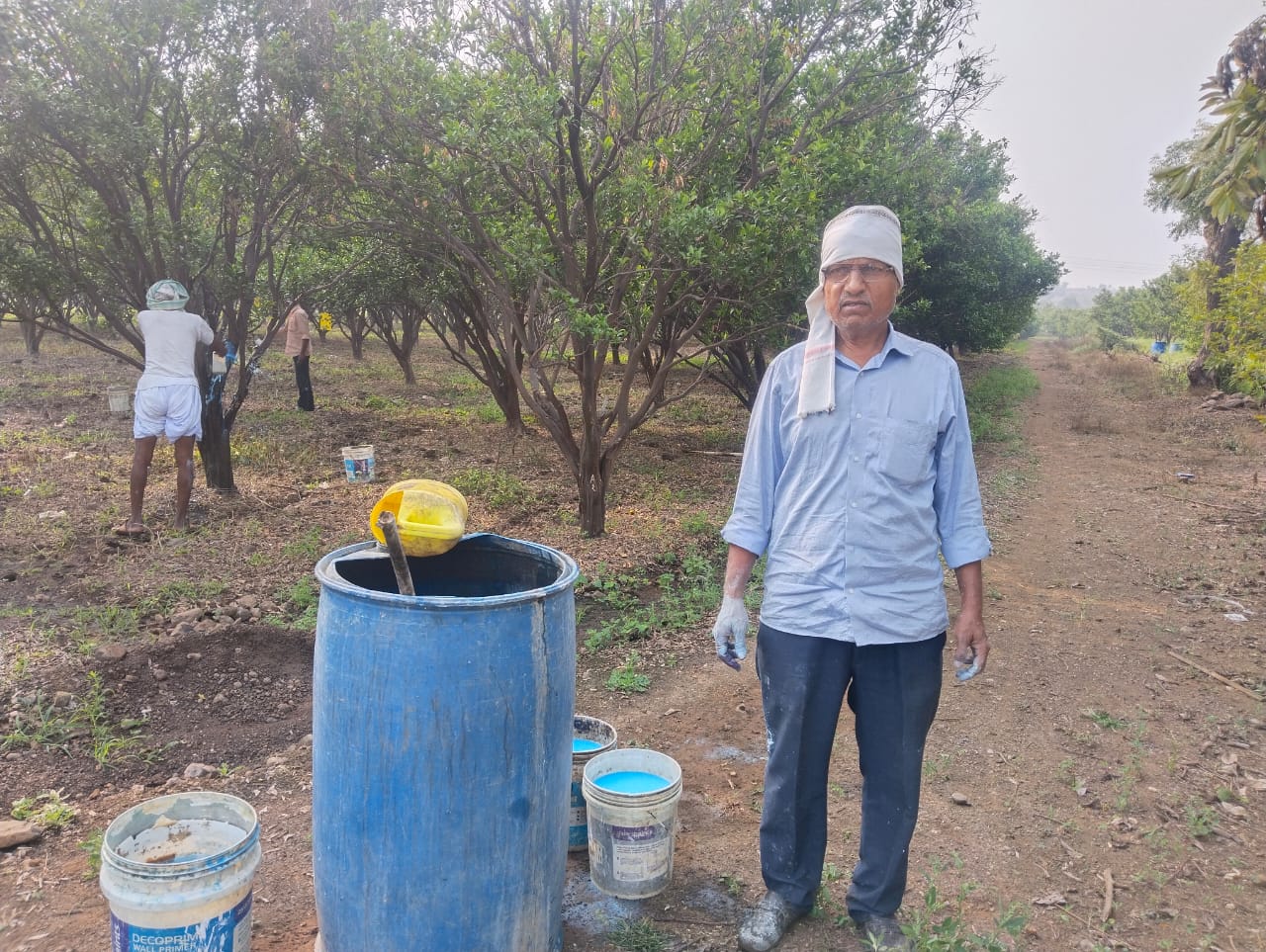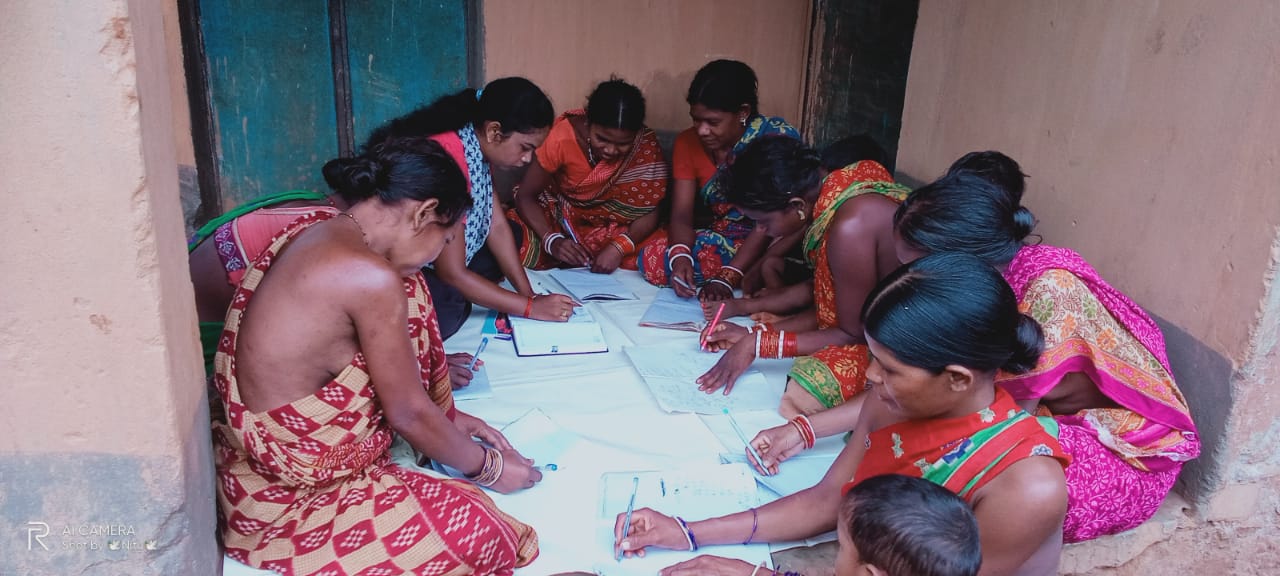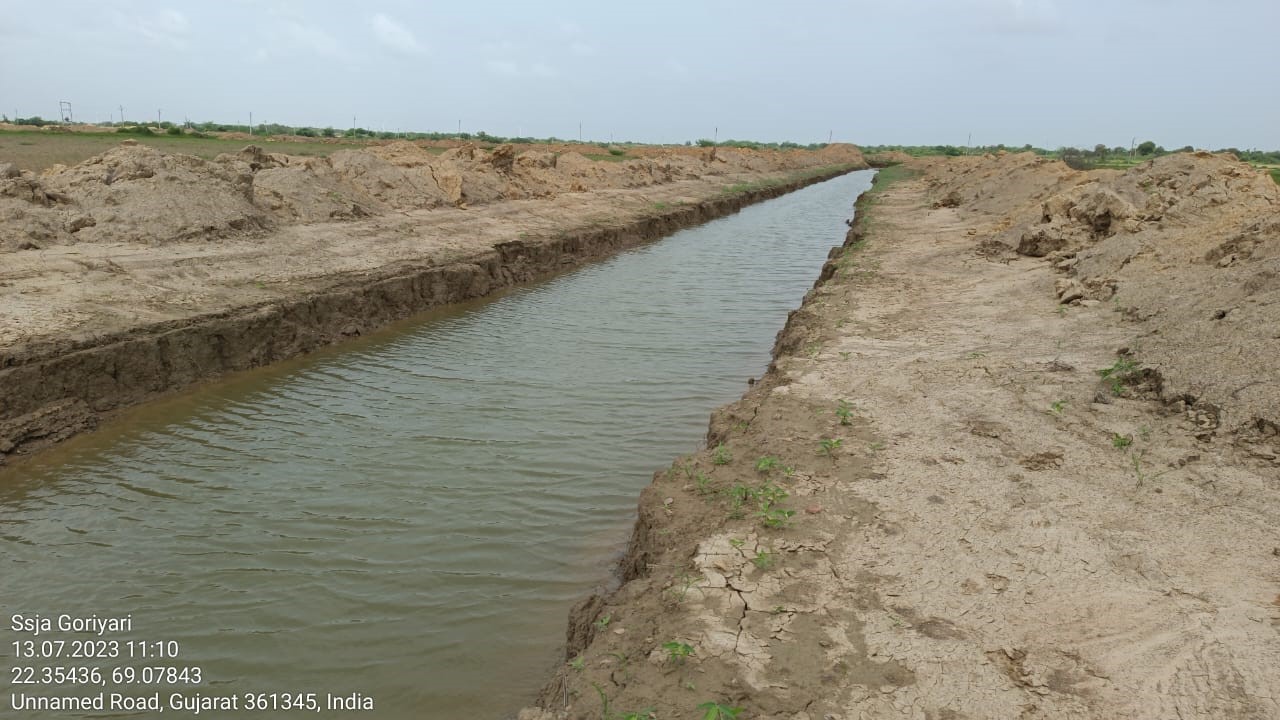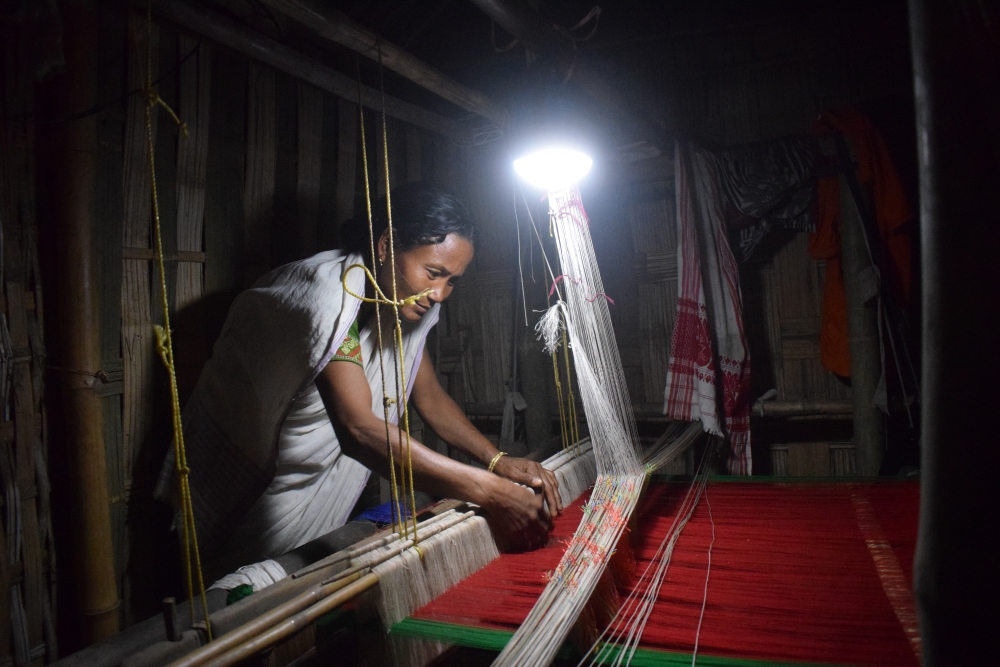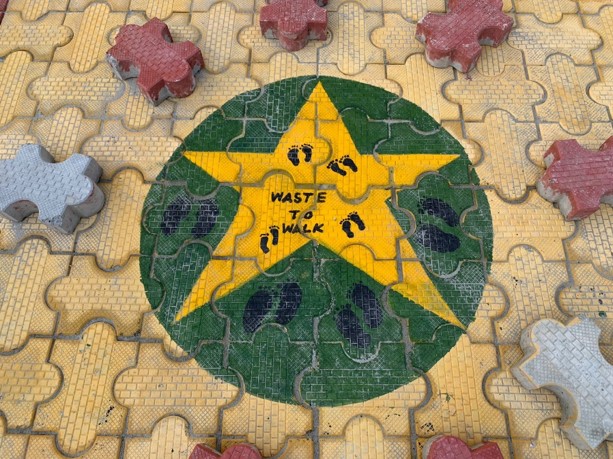The journey of the Sahyadri women farmers’ group shows that regenerative agricultural practices can provide livelihood opportunities and help farmers make profits too
In the beautiful village of Satarde in Maharashtra’s Kolhapur district, a group of 12 women farmers has established a thriving, profitable vermicomposting business. Today, the Sahyadri women farmers’ group is promoting and enabling the practice of regenerative agriculture by selling vermicompost to their fellow farmers engaged in sugarcane cultivation. Their journey — from humble beginnings to economic success — is an inspiring story of dedication, innovation, and community development.
It was in April 2022 when the women came to know about the ‘Reducing Water Usage and Carbon Emissions in Maharashtra through Regenerative and Sustainable Sugarcane Farming’ programme during one of the training sessions in the village. Voicing their concerns about rampant soil degradation and its implications for future generations, the women expressed their keenness to learn vermicomposting, an eco-friendly activity that would enable them to preserve soil health, and earn extra income.
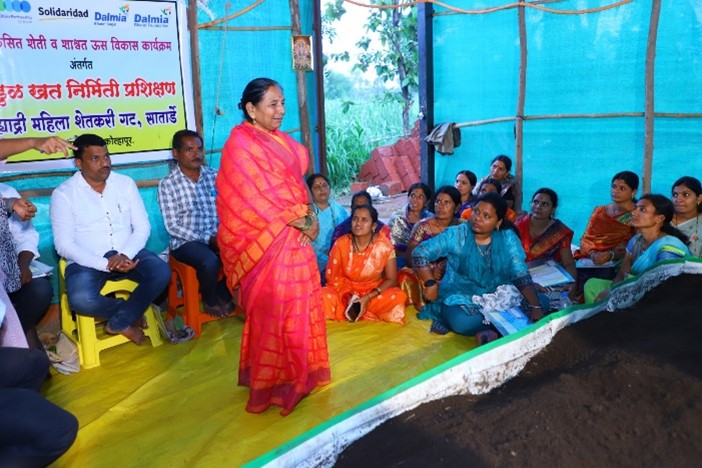
Witnessing their passion and enthusiasm, the programme team decided to train the women farmers in vermicomposting. They were organised into a group of 10, and equipped with a total of four vermi-beds for the production of vermicompost, a biofertilizer which could replace synthetic fertilisers. With support from Solidaridad, the group was taught different methods of composting and their benefits by expert trainers. They also received training on modern, sustainable techniques of sugarcane farming at the Vasantdada Sugar Institute, Pune.
Not only has the use of vermicompost enhanced soil fertility (by improving microbial health, and increasing levels of nitrogen, potash, calcium and other nutrients), the Sahyadri group along with experts from Solidaridad has also estimated that using only six tonnes of vermicompost per hectare of land can reduce costs incurred on fertilisers (by as much as ₹3,800–₹4,000 per hectare) and on pesticides (by as much as 40 percent) over the next three or four years. Not surprisingly, the programme has, from a financial perspective, given a fresh lease of life to these women. Till date, the group has produced 3,100 kg of vermicompost from the four vermi-beds, earning ₹25,200 in the process. They also plan to sell an additional 250 kg of the compost at a much higher rate, with the aim of earning an estimated ₹50,000.
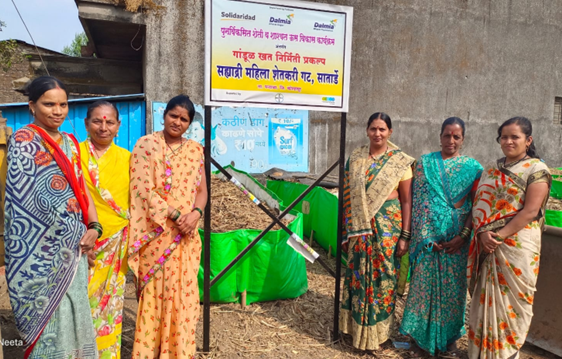
“We are very happy and proud that we have earned this money by ourselves from the vermi-beds. We will use this money to expand our vermicomposting business. This will not only help us in protecting mother earth but also provide us some extra income, which we can utilise for our own expenses,” says Mangal Tanaji Patil, a group member. “We are also looking to install four more vermi-beds. This will help us to supply more vermicompost as its demand is rising,” adds Kalyani Naik, another member.
Word of the Sahyadri group’s achievements has spread to neighbouring regions such as Baramati. The women of Baramati were inspired to set up their own vermicomposting unit, after visiting Satarde and learning from the experiences of the women farmers there.
With Solidaridad’s help, the Sahyadri group has registered itself as an MSME. They are now planning to create their own brand that will cater to the needs of various groups of farmers. Additionally, they are also hoping to participate in different events (such as kisan melas) to increase sales of the compost produced by them. Solidaridad also continues to provide training support, marketing support (by promoting their products and providing information on events where these products can be marketed) and build linkages with demo plot holders who are likely to use vermicompost on their lands. As Mangal says, “The scope of vermicompost is huge in our area. So, we are trying to promote our products with the help of the project team, in order to sell more, earn more and protect our soil.”
The Sweet Taste of Success
In Maharashtra, Solidaridad’s ‘Reducing Water Usage and Carbon Emissions in Maharashtra through Regenerative and Sustainable Sugarcane Farming’ programme, supported by Food Value Chain of Bayer, Dalmia Bharat Sugar and Industries Limited, and Dalmia Bharat Foundation, is helping 10,000 farmers conserve soil by promoting regenerative agricultural practices. It is also enabling farmers to make and sell homemade compost. These interventions have resulted in a significant decline in soil degradation, and harmful practices such as monocropping and crop burning.
Among farmers and groups such as Sahyadri, the project has led to an increase in adoption of practices such as waste mulching and use of organic manure (along with a 15 percent reduction in the use of synthetic, chemical fertilisers). Since 2021, the efforts have also translated to a 12 percent increase in farm yield, along with an estimated 15 million litres of water saved per year. Additionally, safe disposal of agrochemicals has also been ensured with the installation of agrochemical storage containers.
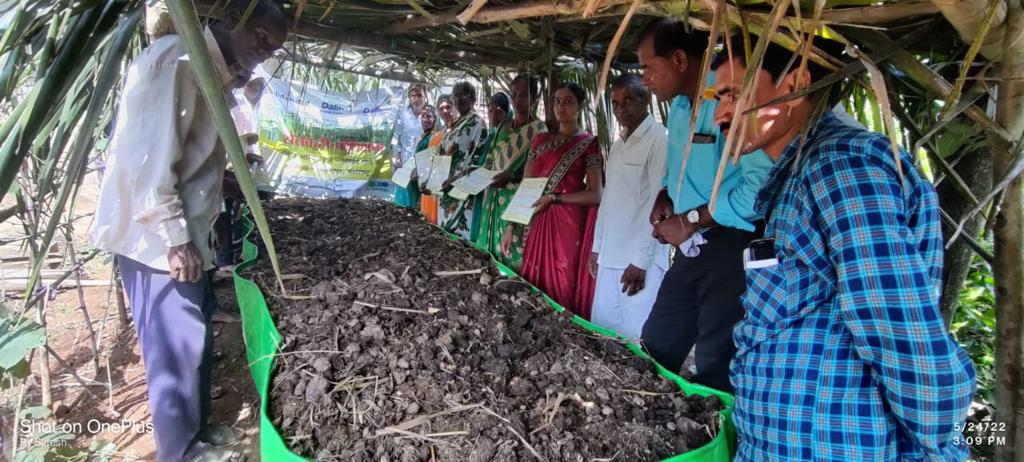
Most encouragingly, women farmers have increasingly benefitted from the programme. They are now raising awareness about the importance and benefits of practices such as vermicomposting and soil health management. Their efforts are now bearing fruit, as evidenced by the rising popularity of environment-friendly practices and demand for eco-friendly farm inputs and products.
“Soil health is one of the major concerns nowadays. There is a need to raise awareness among the farmers on the benefits of the application of organic compost (like vermicompost) in the field to reduce the cost of production and improve soil fertility. The Sahyadri group is doing a great job in contributing towards the restoration of soil health which has deteriorated due to the excessive use of agrochemicals. They are the flag-bearers of this initiative, and are helping protect mother earth,” says Manisha Shah, Assistant Programme Manager, Solidaridad.


